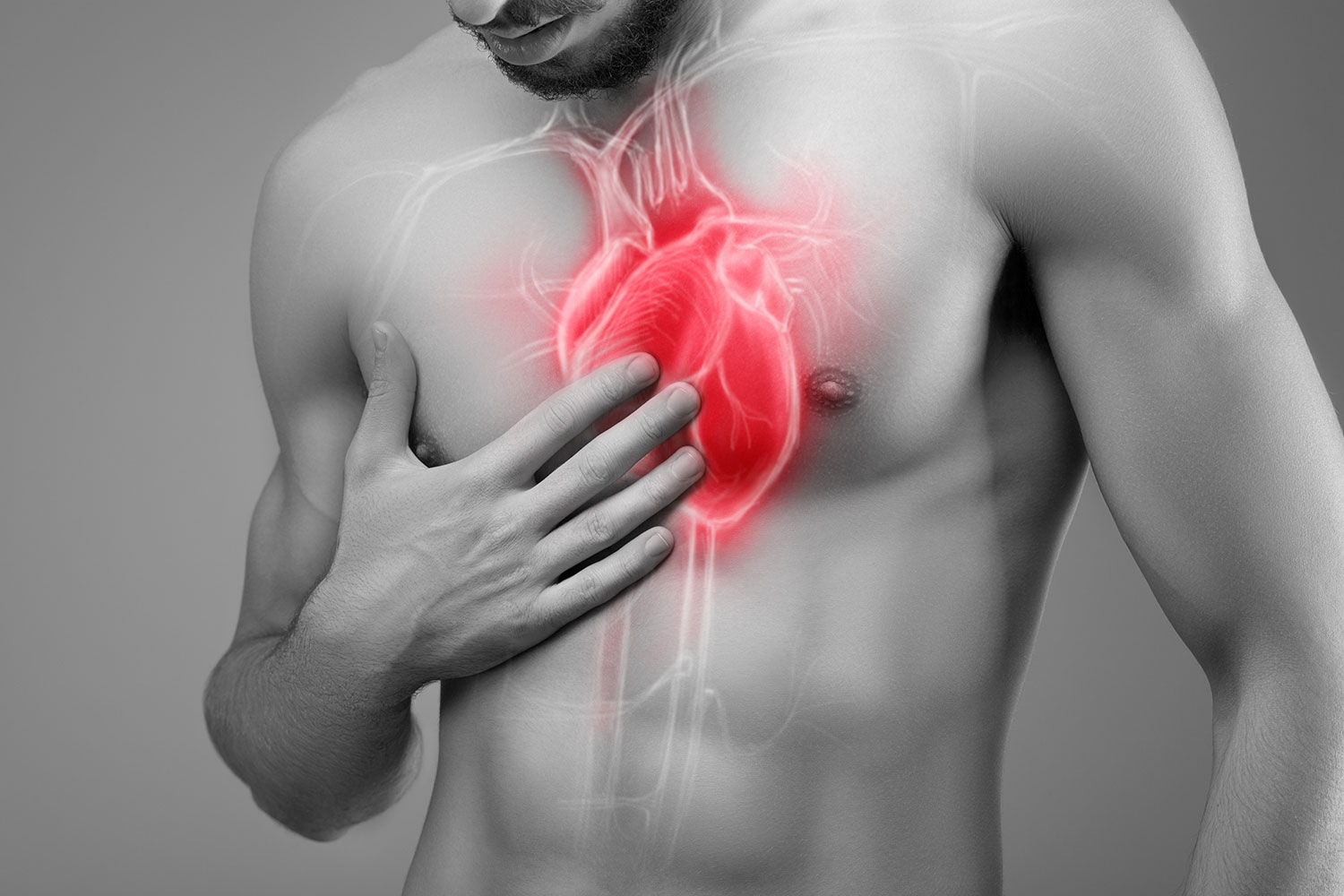How Cardiology care supports mental and emotional wellness
How Cardiology care supports mental and emotional wellness
Blog Article
Understanding the Importance of Cardiology in Modern Healthcare Providers
Cardiology plays a crucial role in modern-day medical care, particularly as cardiovascular disease remains to be the leading cause of mortality worldwide. Advancements in diagnostics and therapy have actually transformed person treatment, enabling earlier treatments and boosted results. In addition, the shift in the direction of preventative cardiology encourages individuals to handle their wellness proactively. As technology continues to develop, the assimilation of cutting-edge services may further redefine cardiology's impact on public wellness, triggering a closer evaluation of arising fads and their effects.
The Occurrence of Heart Disease and Its Impact on Public Health And Wellness
Heart condition stays the leading reason of fatality globally, its effect extends much past individual people to impact public health systems and economies. The high occurrence of heart problem positions a considerable strain on health care resources, necessitating raised funding for rehabilitation, treatment, and avoidance programs. Public health initiatives should deal with risk elements such as weight problems, smoking cigarettes, and sedentary way of lives, which contribute significantly to the increasing incidence of heart conditions.Moreover, the economic concern connected with cardiovascular disease is enormous, encompassing not only direct clinical expenses but also indirect costs connected to lost efficiency and premature death. Areas face challenges in taking care of these costs, frequently causing disparities in healthcare accessibility and end results. As the population ages and lifestyle-related threats continue to intensify, the urgency for reliable cardiology treatments becomes critical. Addressing heart illness is not only a matter of specific health however likewise an important public health top priority.
Advances in Heart Diagnostics and Imaging Techniques
Recent innovations in cardiac diagnostics and imaging methods have revolutionized the field of cardiology, boosting the capability to check and discover heart conditions. Methods such as cardiac MRI, CT angiography, and echocardiography have ended up being significantly advanced, providing comprehensive photos of heart structures and functions. These methods enable the early recognition of conditions like coronary artery condition, cardiac arrest, and valvular disorders.Moreover, advancements in non-invasive diagnostics, such as wearable technology and remote monitoring gadgets, have actually equipped individuals and medical care suppliers. These tools help with real-time tracking of heart rhythms and other essential signs, causing timely treatments. In addition, expert system is being incorporated right into imaging evaluation, boosting accuracy and efficiency in diagnosis.
Advancements in Therapy Alternatives for Heart Issues
Recent advancements in cardiology have led to substantial innovations in treatment options for heart conditions. These consist of innovative surgical strategies that enhance step-by-step outcomes and arising medications that offer new methods for treatment. As the area advances, these advancements play an important role in boosting patient treatment and outcomes.
Advanced Surgical Techniques
Developments in medical methods have actually transformed the landscape of cardiology, offering brand-new hope for individuals with heart disease. Minimally invasive treatments, such as catheter-based interventions, have actually greatly lowered recuperation times and medical facility remains. Strategies like robotic-assisted surgical treatment boost accuracy, allowing cosmetic surgeons to navigate complex anatomical structures with higher accuracy. Innovations in imaging technology assist in real-time visualization during procedures, enhancing outcomes. Transcatheter aortic shutoff substitute (TAVR) exhibits a breakthrough in treating aortic constriction, making it possible for shutoff substitute without open-heart surgical procedure. In addition, hybrid strategies that incorporate catheter-based and surgical approaches offer tailored options for numerous heart issues. These advanced surgical strategies not only enhance patient safety but also broaden therapy alternatives, underscoring the crucial role of technology in modern cardiology techniques.
Arising Medicines and Treatments
As the landscape of cardiology remains to evolve, arising medicines and treatments play a pivotal role in enhancing therapy choices for heart disease. Technologies such as unique anticoagulants and progressed lipid-lowering representatives have actually changed the management of heart diseases, considerably lowering person morbidity and death. In addition, the advancement of gene treatments and regenerative medication offers promising opportunities for dealing with problems previously regarded irreversible. Scientific tests are continually disclosing the effectiveness of these treatments, pushing the borders of traditional treatments. The combination of electronic wellness modern technologies assists in personalized medicine, allowing for customized treatment strategies based on hereditary and way of life factors. Jointly, these developments underscore the vibrant nature of cardiology, enhancing individual outcomes and redefining requirements of care in contemporary healthcare.
The Role of Preventive Cardiology in Individual Care
Precautionary cardiology plays an essential duty in client treatment by concentrating on the identification of threat elements that add to cardiovascular disease. Through lifestyle adjustment strategies and early discovery strategies, doctor can effectively decrease the incidence of cardio occasions - Cardiology Jupiter. This aggressive technique not just improves individual end results but additionally promotes long-term wellness
Threat Factor Recognition
While cardio conditions stay a leading reason for morbidity and mortality worldwide, efficient threat variable recognition offers as a cornerstone of precautionary cardiology. Recognizing threat elements such as high blood pressure, household, diabetes mellitus, and hyperlipidemia history is essential for early treatment. Healthcare professionals utilize numerous evaluating methods to assess these aspects, allowing for tailored safety nets. Furthermore, recognizing a client's lifestyle options, such as cigarette smoking and physical inactivity, further educates threat analyses. This comprehensive examination enables clinicians to establish personalized treatment plans targeted at mitigating risks. By focusing on danger aspect identification, health care systems can boost individual results and decrease the overall concern of cardiovascular diseases, eventually contributing to enhanced public health methods and resource allocation.
Lifestyle Alteration Methods
A plethora of researches highlights the crucial function of way of living adjustment methods in reducing cardiovascular condition risk. These techniques include nutritional modifications, raised exercise, smoking cigarettes cessation, and weight administration. By adopting a heart-healthy diet regimen abundant in fruits, vegetables, entire grains, and lean proteins, individuals can reduce cholesterol degrees and high blood pressure. Normal physical activity reinforces the heart and enhances total cardio health and wellness. Additionally, stopping smoking cigarettes greatly reduces the threat of heart illness and enhances recuperation rates for those with existing problems. Weight monitoring better contributes to cardiovascular wellness by minimizing other risk aspects such as diabetes and hypertension. Implementing these way of life transforms not only promotes individual wellness yet likewise functions as a keystone of preventive cardiology in client treatment.
Early Discovery Techniques
Lifestyle modifications greatly contribute to minimizing cardiovascular illness dangers, yet they are most efficient when paired with very early discovery strategies. Preventative cardiology emphasizes the relevance of recognizing possible heart concerns before they escalate into severe problems. Strategies such as blood pressure tracking, cholesterol testing, and advanced imaging innovations like echocardiograms play essential roles in assessing cardio health and wellness. Biomarkers and hereditary screening additionally boost the precision of early discovery, enabling for customized precautionary techniques. Regular heart threat assessments empower medical care carriers to intervene proactively, potentially avoiding cardiovascular disease and strokes (Cardiologist near me). By incorporating these very early detection techniques into routine treatment, individuals can take advantage of prompt way of life interventions and targeted treatments, ultimately enhancing results and improving quality of life
Integrating Modern Technology Into Cardiology Practices
As advancements in technology remain to reshape various fields, the integration of cutting-edge devices and check my blog systems right into cardiology practices has ended up being important for improving individual care and outcomes. Telemedicine systems permit cardiologists to monitor patients from another location, boosting access to care while lowering the worry on healthcare centers. Wearable devices, such as smartwatches, enable continuous heart rate monitoring, informing both doctors and patients to potential issues in real-time. Additionally, fabricated knowledge (AI) is being made use of to examine huge amounts of heart information, aiding in early medical diagnosis and tailored therapy plans. Advanced imaging methods, including 3D echocardiography, enhance visualization of heart frameworks, causing a lot more precise interventions. Electronic wellness records (EHRs) enhance individual information administration, guaranteeing that cardiologists have instant access to critical data. Together, these technical developments are transforming cardiology, promoting positive administration and enhanced health and wellness end results for patients with cardiovascular conditions.
The Significance of Patient Education And Learning and Engagement
Person education and engagement play a crucial role in the management of cardio wellness. By furnishing people with understanding regarding their problems, treatment options, and way of life changes, health care carriers empower individuals to take an active function in their care. This aggressive technique can result in enhanced adherence to prescribed medicines, nutritional changes, and exercise programs, inevitably decreasing the threat of complications.Engagement additionally promotes a solid patient-provider partnership, urging open communication and trust. When patients feel informed and entailed, they are most likely to voice worries and ask questions, which can lead to much better medical outcomes. Additionally, educational resources, such as workshops or digital platforms, can boost understanding and advertise self-management strategies. In general, prioritizing patient education and interaction is necessary for boosting cardio wellness, boosting lifestyle, and minimizing healthcare prices linked with heart diseases.
Future Patterns in Cardiology and Their Potential Influence

Often Asked Inquiries
What Lifestyle Modifications Can Minimize Heart Condition Risk?
The current question addresses way of life adjustments that can substantially reduce heart problem threat. Cardiologist near me. Taking on a well balanced diet plan, involving in regular exercise, preserving a healthy weight, handling stress, and avoiding cigarette can especially enhance cardiovascular health
Exactly How Can I Recognize Early Indications of Heart Troubles?
Acknowledging early indications of heart troubles involves tracking symptoms such as upper body discomfort, lack of breath, fatigue, and irregular heart beat. Timely understanding of these indications can prompt essential clinical analysis and intervention for better results.
What Are the Differences In Between Cardiologists and Heart Surgeons?
The differences between cardiologists and cardiac cosmetic surgeons exist in their duties; cardiologists mainly handle and diagnose check this site out heart disease through non-invasive approaches, while heart doctors do procedures to remedy architectural heart issues. Each plays an essential, distinct function.

Exactly how Often Should I Get My Heart Wellness Checked?
The frequency of heart checkup differs based on individual threat factors. Usually, adults need to undergo examinations each to two years, while those with current conditions may require even more frequent evaluations as recommended by medical care experts.
What Function Does Genes Play in Cardiovascular Disease Risk?
Genes significantly affects heart problem threat, with domestic patterns showing inherited problems. Details genetics can predispose people to hypertension, cholesterol problems, and other cardio issues, highlighting the relevance of hereditary screening you can try these out in examining heart health. Heart condition continues to be the leading cause of death around the world, its influence expands far past private people to influence public health systems and economic climates. Public health and wellness campaigns have to deal with threat elements such as excessive weight, cigarette smoking, and sedentary lifestyles, which add substantially to the rising occurrence of heart conditions.Moreover, the financial burden connected with heart condition is enormous, including not just straight medical prices yet likewise indirect costs connected to shed productivity and early mortality. Preventive cardiology plays a vital role in person treatment by focusing on the identification of threat factors that contribute to heart illness. Synthetic knowledge (AI) and machine discovering are enhancing diagnostics and client tracking, making it possible for very early discovery of heart conditions. The differences in between cardiologists and cardiac doctors lie in their duties; cardiologists largely take care of and identify heart problems with non-invasive methods, while heart surgeons perform medical procedures to fix architectural heart problems.
Report this page